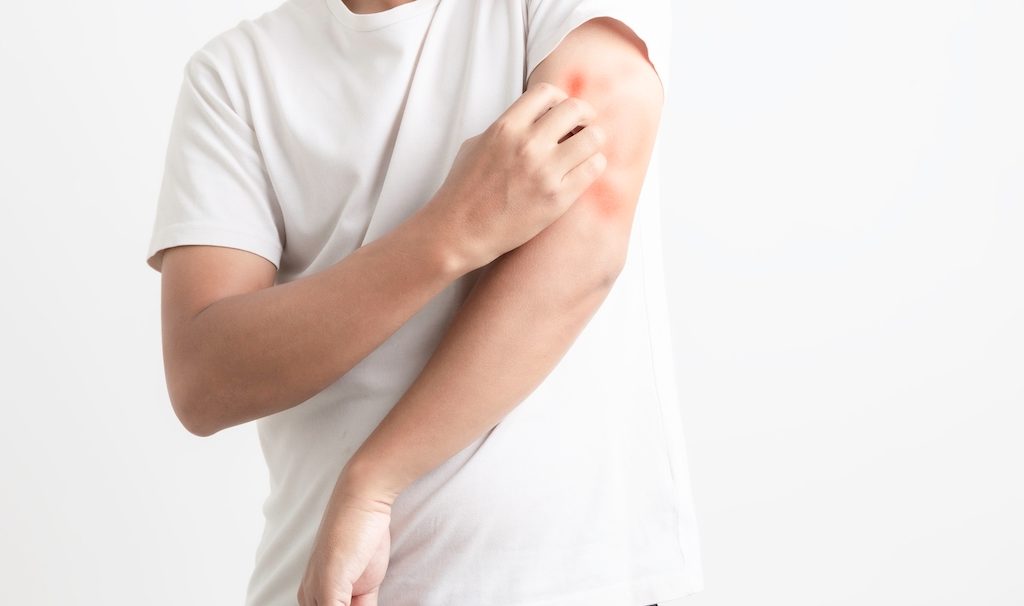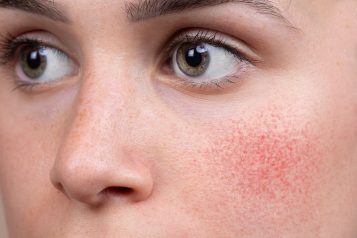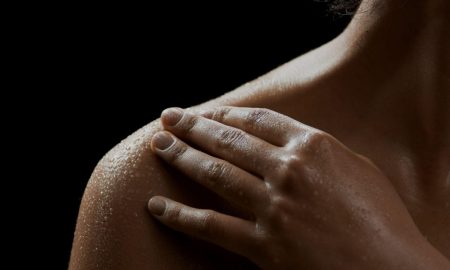 Photo Credit: Shutterstock
Photo Credit: Shutterstock
Does your skin feel itchy and dry, look inflamed, almost like a rash? These are all common symptoms of eczema. With October being National Eczema Month, Haute Beauty asked the experts for all the details, this is what they shared.
Dr. Omar A. Ibrahimi | Skin | Stamford/Greenwich
Eczema is partially driven by genetics and partially by the environment. It tends to be exacerbated in wintertime when the heat we run is low in humidity, and we tend to take hot showers. The best way to maintain or prevent or control eczema is to hydrate your skin. This means frequent applications of creams and ointments, especially in wintertime. Lukewarm showers are better than hot steamy ones. Putting a humidifier by your bed is also a great tool to improve eczema.
Are there certain foods that increase eczema? The understanding of diet in eczema is an area of ongoing research and we are learning more and more every day. Many patients with eczema also have food allergies and sensitivities. However, this doesn't mean that one should adopt any radical or drastic dietary changes without getting evaluated and formulating a plan in conjunction with your dermatologist. There are many different types of allergies and sensitivities and any drastic diet may actually be cutting out good things your body may need.
For more information, visit Dr. Ibrahimi's website, Instagram, or Facebook!
Dr. Bertha Baum | Skin | Miami/Ft. Lauderdale
Eczema is a common inflammatory skin condition that commonly causes itching, dry skin and skin infections. There are many types of eczema and presentations of it. Eczema can begin during childhood, adolescence, or adulthood, and it can be mild to severe. Moisturizers, antihistamines, topical creams, and corticosteroids are the most common treatments used; for severe cases, there are oral medications and injectables that work very well. Many factors can contribute to eczema, including an interaction between the environment and genetics.
There is a potential genetic component to eczema that includes a protein called “filaggrin” that helps maintain moisture in your skin and eczema patients don't work correctly. Flexural and crease areas of skin that rub against each other can lead to irritation and tend to be affected. I recommend patients only use cleansers that are fragrance-free and have ceramides. Also, the detergent should be free and clear. Some recommendations I give my patients include:
- Take short showers with lukewarm water.
- Bleach baths can be great to prevent infections (1/4 cup of bleach for a full bathtub with water).
- Ointments and creams are better than lotions if the skin is very dry.
- Ice and cold decrease itching (keep moisturizing creams in the refrigerator.
- Wet wraps are a great treatment option.
For more information, visit Dr. Baum's website, Instagram, or Facebook!























